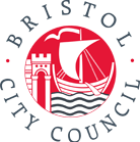From clinical trial to community transformation: the impact of REACT
- 20th May 2025
Credit: Alex Rotas Photography
This Clinical Trials Day [Tuesday 20 May], Bristol Health Partners is celebrating the success of Retirement in Action (REACT): a programme designed for older people with mobility limitations that combines tailored group exercise and behaviour change.
REACT helps older adults stay active and improve their strength and balance. It is proven to reverse signs of frailty in people who have trouble getting around – and is now available in locations across Bristol.
A decline in mobility associated with ageing and general ill health can:
- greatly reduce quality of life,
- lead to loss of independence,
- generate substantial health and social care costs, and
- reduce overall life expectancy.
In the UK, three in 10 people of state pension age are classified as disabled due to mobility limitations. This is higher for people who live in areas of deprivation and those from ethnically diverse communities.
The evidence for REACT
REACT was a large, randomised controlled trial, funded by the National Institute for Health Research (NIHR), with an international research team including the universities of Bath, Birmingham, Exeter, and the University of the West of England (UWE Bristol).
The REACT trial ran in Bath, Bristol, Birmingham and Devon over four years, involving 777 participants aged 65 and over.
The results, which were published in two papers in the Lancet Public Health in 2022, showed that REACT helps reverse frailty and is cost effective to run.
Watch the short film about those who took part in the trial:
REACT in the community
Local organisations, co-ordinated by Bristol Health Partners, have worked tirelessly to promote the evidence for REACT’s effectiveness.
Thanks to their efforts, REACT classes have been running regularly in leisure centres and other community spaces across Bristol since 2023.
These sessions have been shown to have made a significant difference to the independence and quality of life of hundreds of people, including those from communities with the poorest health outcomes and biggest barriers to taking part. Along with the physical benefits, the sessions are designed with a strong social aspect to help tackle loneliness and promote overall wellbeing.
Older adults who feel that attending sessions will help their strength and balance can either be referred by their GP or self-refer.
Watch the short film about REACT’s first year in the community:
Professor Afroditi Stathi, who led the study, recently delivered the Jerry Morris Memorial lecture at the University of Bristol. In her talk she highlighted both the challenges and the immense opportunities in promoting active ageing, focusing on the effectiveness of REACT and its scale up across Bristol, which she hopes to replicate nationwide.
Read the papers
- ‘Effect of a physical activity and behaviour maintenance programme on functional mobility decline in older adults: the REACT (Retirement in Action) randomised controlled trial’
- ‘Cost-effectiveness of a physical activity and behaviour maintenance programme on functional mobility decline in older adults: an economic evaluation of the REACT (Retirement in Action) trial’






